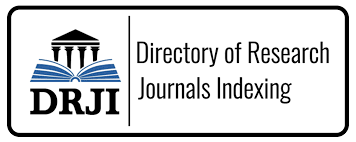Seberapa Jauh Peran Work-Life Balance Sebagai Kunci Performa Optimal Kinerja Karyawan Pada Perusahaan Start-Up? (Studi Kasus Pada SMI Group)
DOI:
https://doi.org/10.31851/jmwe.v22i1.18214Abstract
ABSTRAK
Penelitian ini bertujuan untuk mengetahui seberapa besar pengaruh penerapan strategi work-life balance mampu meningkatkan kinerja karyawan pada perusahaan start-up. Penelitian ini menggunakan pendekatan metode kuantitatif dengan desain penelitian survei. Dalam penelitian ini regresi linier sederhana diolah dan dianalisis menggunakan IBM SPSS Statistic 25 dengan metode sampel jenuh melibatkan seluruh populasi pada karyawan SMI Group, Kota Semarang sejumlah 52 responden. Hasil analisis penelitian ini menunjukkan bahwa menerapkan pendekatan work-life balance pada perusahaan start-up berpengaruh positif dalam meningkatkan kinerja karyawan di SMI Group, Kota Semarang. Total pengaruhnya sebesar 56,5%, sisanya sebesar 43,5% diperngaruhi oleh variabel yang tidak diteliti dalam studi ini.
Kata Kunci: Work-Life Balance, Kinerja Karyawan, Perusahaan Start-Up.
ABSTRACT
This research aims to find out how much influence implementing work-life balance strategies can improve employee performance in start-up companies. This research uses a quantitative method approach with a survey research design. In this study, simple linear regression samples were processed and analyzed using IBM SPSS Statistics 25 with the saturated method involving the entire population of SMI Group employees, Semarang City, totaling 52 respondents. The results of this research analysis show that implementing the work-life balance approach in start-up companies has a positive effect in improving employee performance at SMI Group, Semarang City. The total influence is 56.5%, the remaining 43.5% is influenced by variables not examined in this research.
Keywords : Work-Life Balance, Employee Perfomance, Start-Up Company.
References
Aisya Ragilita, R., & Evasari Dian, A. (2023). Peran Stres Kerja Dalam Memediasi Pengaruh Beban Kerja Dan Lingkungan Kerja Terhadap Kinerja Karyawan Pada CV. Bumi Mandiri Indonesia. Bisman (Bisnis Dan Manajemen): The Journal of Business and Management, 31(1), 82–87.
Akbar, Q. R., & Rossieta, H. (2024). Evaluasi Strategi Bisnis Perusahaan Start Up Menggunakan Bisnis Model Kanvas Pada PT XYZ. 8, 444–454.
Anakpo, G., Nqwayibana, Z., & Mishi, S. (2023). The Impact of Work-from-Home on Employee Performance and Productivity : A Systematic Review.
Apriani, I., & Darmayanti, N. (2023). The Influence of Perceived Organizational Support and Generation on Employee Engagement. 3(5), 1125–1138.
Aras, R. A., Sucipto, K. R. R., & Sari, E. P. (2021). Faktor Keberhasilan Start-Up Di Makassar. JMBI UNSRAT (Jurnal Ilmiah Manajemen Bisnis Dan Inovasi Universitas Sam Ratulangi)., 8(3), 910–920. https://doi.org/10.35794/jmbi.v8i3.36757
Bhende, P., Mekoth, N., Ingalhalli, V., & Reddy, Y. V. (2020). Quality of Work Life and Work–Life Balance. Journal of Human Values, 26(3), 256–265. https://doi.org/10.1177/0971685820939380
Budiyanto, E., & Mochklas, M. (2020). Kinerja Karyawan Ditinjau dari Aspek Gaya Kepemimpinan Budaya Organisasi dan Motivasi Kerja. In Evaluasi Kinerja SDM.
Chiang, F. F. T., Birtch, T. A., & Kwan, H. K. (2010). The moderating roles of job control and work-life balance practices on employee stress in the hotel and catering industry. International Journal of Hospitality Management, 29(1), 25–32. https://doi.org/10.1016/j.ijhm.2009.04.005
Daisy, A., & Syafitri, A. (2024). Perkembangan serta Peran Ekonomi Kreatif di Indonesia dari Masa ke Masa. 2(3).
Devkota, N., Shakya, R. M., Parajuli, S., & Paudel, U. R. (2022). Challenges of Work-Life Balance Faced by Working Fathers in Kathmandu Valley : Evidence from Cross- Sectional Data. 3(1), 27–37.
Dey, C. (2023). Analyzing The Role Of Work-Life Balance On Employee Loyalty In Indian Startups : A Linear Regression-Based Approach. 45–51.
Dharmayasa, P. B., & Adnyani, I. G. A. D. (2020). Pengaruh Stres Kerja, Kepuasan Kerja Dan Kompensasi Finansial Terhadap Kinerja Karyawan. E-Jurnal Manajemen Universitas Udayana, 9(8), 2915. https://doi.org/10.24843/ejmunud.2020.v09.i08.p02
Eriksson, A., Dellve, L., Williamsson, A., & Skagert, K. (2022). How Conditions and Resources Connected to Digital Management Systems and Remote Work Are Associated with Sustainable Work. International Journal of Environmental Research and Public Health, 19(23), 15731. https://doi.org/10.3390/ijerph192315731
Febrina, H., & Tewu, M. L. D. (2023). Resiko Sistem Manajemen Kinerja yang Buruk Terhadap Perusahaan Start Up di Indonesia . 131–146.
Fisher, G. G., Bulger, C. A., & Smith, C. S. (2009). Beyond Work and Family: A Measure of Work/Nonwork Interference and Enhancement. Journal of Occupational Health Psychology, 14(4), 441–456. https://doi.org/10.1037/a0016737
Fontinha, R., Easton, S., & Van Laar, D. (2019). Overtime and quality of working life in academics and nonacademics: The role of perceived work-life balance. International Journal of Stress Management, 26(2), 173–183. https://doi.org/10.1037/str0000067
Idris, I. (2021). Penerapan Focus Group Discussion (Fgd) Untuk Meningkatkan Kemampuan Guru Mengimplementasikan Pendekatan Saintifik. Daiwi Widya, 8(3), 86–96. https://doi.org/10.37637/dw.v8i3.826
Irawanto, D. W., Novianti, K. R., & Roz, K. (2021). Work from home: Measuring satisfaction between work–life balance and work stress during the covid-19 pandemic in indonesia. Economies, 9(3). https://doi.org/10.3390/economies9030096
Kusena, P. (2023). The Effect of Human Resource Management on Performance of Employees with Mediating Effect of Work-Life Balance in Nigeria. 1–9. https://doi.org/10.21522/TIJMG.2015.09.01.Art008
Lukmiati, R., Samsudin, A., & Jhoansyah, D. (2020). Pengaruh Work Life Balance terhadap Kinerja Karyawan pada Karyawan Staff PT. Muara Tunggal. Jurnal Ekobis Dewantara, 3(3), 46–50. https://doi.org/10.26460/ed_en.v3i3.1688
McDonald, P., & Bradley, L. M. (2005). The Case for Work-Life Balance: Closing the Gap Between Policy and Practice. Hudson Global Resources (Aust.) Pty Limited,.
Rene, R., & Wahyuni, S. (2018). Pengaruh Work-Life Balance Terhadap Komitmen Organisasi, Kepuasan Kerja, Dan Motivasi Kerja Terhadap Kinerja Individu Pada Karyawan Perusahaan Asuransi Di Jakarta. Jurnal Manajemen Dan Bisnis Sriwijaya, 16(1), 53–63. https://doi.org/10.29259/jmbs.v16i1.6247
Robbins, S. P., & Judge, T. A. (2015). Perilaku organisasi. Salemba Empat.
Shagvaliyeva, S., & Yazdanifard, R. (2014). Impact of Flexible Working Hours on Work-Life Balance. 2014(January), 20–23.
Silaen, N. R., Syamsuriansyah, Chairunnisah, R., Sari, M. R., Mahriani, E., Tanjung, R., Triwardhani, D., Haerany, A., Masyruroh, A., Satriawan, D. G., Lestari, A. S., Arifudin, O., Rialmi, Z., & Putra, S. (2021). Teori sumber daya manusia. In Kinerja Karyawan.
Stubbs, W. (2017). Sustainable Entrepreneurship and B Corps. Business Strategy and the Environment, 26(3), 331–344. https://doi.org/10.1002/bse.1920
Sugiyono. (2019). Metode penelitian kuantitatif kualitatif dan R&D. Alfabeta.
Yusuf, M. P., & Etikariena, A. (2023). Innovative Work Behavior at Startup : Role of Inclusive Leadership , Psychological Safety , and Psychological Empowerment. 9, 123–144. https://doi.org/10.22146/gamajop.78672
Downloads
Published
Issue
Section
License
Copyright (c) 2025 Jurnal Media Wahana Ekonomika

This work is licensed under a Creative Commons Attribution-NonCommercial 4.0 International License.
The copyright of the received article shall be assigned to the publisher of the journal licensed under a Creative Commons Attribution-NonCommercial 4.0 International License in line with the license, authors and any users (readers and other researchers) are allowed to share and adapt the material only for non-commercial purposes. In addition, the material must be given appropriate credit, provided with a link to the license, and indicated if changes were made. If authors remix, transform or build upon the material, authors must distribute their contributions under the same license as the original.






















